
Your support helps us to tell the story
My recent work focusing on Latino voters in Arizona has shown me how crucial independent journalism is in giving voice to underrepresented communities.
Your support is what allows us to tell these stories, bringing attention to the issues that are often overlooked. Without your contributions, these voices might not be heard.
Every dollar you give helps us continue to shine a light on these critical issues in the run up to the election and beyond

Eric Garcia
Washington Bureau Chief
I am the Lord your God, and thou shalt worship no other god before me.’ Boy, those were the days, huh?” So thunders Jed Bartlet at the end of the first episode of The West Wing, 25 years ago today. As character introductions go, television has seen few as potent and delightful as when Martin Sheen’s avuncular Democratic president swept into the White House.
Over the course of seven seasons from 1999 to 2006, Aaron Sorkin’s political drama achieved the impossible: transforming the starchy, cutthroat world of Washington DC politicos into something joyous and accessible. The story of Bartlet and his diligent, whip-smart aides – among them loyal chief of staff Leo McGarry (John Spencer), savvy press secretary CJ Cregg (Allison Janney), cocksure fixer Josh Lyman (Bradley Whitford), curmudgeonly speechwriter Toby Ziegler (Richard Schiff), and his idealistic deputy Sam Seaborn (Rob Lowe) – was the perfect vehicle for Sorkin’s distinctive gatling-gun dialogue. It was a show that was smarter and more eloquent than almost anything else on TV, and wasn’t afraid to flaunt it. “It was,” says cast member Joshua Malina, “a show that encouraged you to care about people and how they are affected by political decisions.”
Viewers watched in awe through elections, filibusters, tribunals, military invasions, health scandals, attempted assassinations, and even a kidnapping. The guest roster was a who’s who of venerable stars: JK Simmons, Amy Adams, Gabrielle Union, Glenn Close, Laura Dern, Christian Slater, Christopher Lloyd, Matthew Perry, James Taylor, and Yo-Yo Ma among them. The series’ legacy can be seen not just in TV – in the snappy “walk and talk” device that it originated, and which spawned a hundred parodies – but in the world of theatre (in the hit musical Hamilton), and even in real-world politics. The West Wing was the series that inspired a generation of young Democrats. And for everybody else, it was simply compulsively well-made television.
Sorkin came into The West Wing with real Hollywood pedigree, as the writer of A Few Good Men and 1995’s The American President. It was in this latter film, a smart political drama starring Michael Douglas, that the idea for The West Wing was born. But he began pitching the show at a time when the public was stubbornly resistant to political narratives. “When we first started, it was right after Bill Clinton’s [Monica Lewinsky] scandal,” recalls Janel Moloney, who plays Josh’s secretary Donna Moss. “People were just cynical and grossed out by politics.” TV executives were, accordingly, hesitant to greenlight a series about DC politicians – a genre that had, even in less jaded times, never really produced a hit. As the script for The West Wing went unheeded, Sorkin made inroads elsewhere, creating the well-received TV-insider sitcom Sports Night. But The West Wing remained at the back of his mind; eventually, NBC commissioned a pilot.
Bartlet himself was conceived as a kind of blend of three US presidents: John F Kennedy, Jimmy Carter and Bill Clinton. But while it’s impossible to imagine The West Wing without Sheen as its Jupiterian centre of gravity, the premise could have gone 100 different ways. Sorkin’s original idea was to focus exclusively on the president’s underlings, and never even show Bartlet on screen.
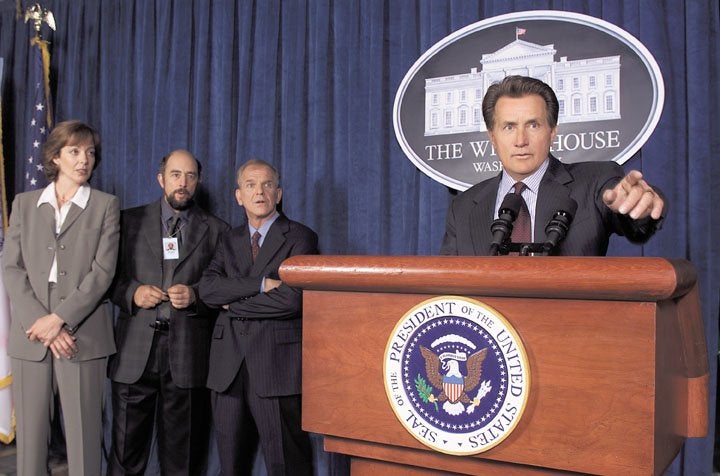
Early brainstorming meetings also suggested a complete uncertainty as to the direction of the character: James Earl Jones, Jack Lemmon, Bruce Dern, Donald Sutherland, Clint Eastwood, Helen Mirren, Jane Fonda, CCH Pounder, Johnny Carson, and (bizarrely) New York Yankees boss George Steinbrenner were among the myriad names floated. Talks with Sidney Poitier didn’t get far, and Alan Alda – who would join the series towards the end of its run as Republican presidential hopeful Arnold Vinick – turned Sorkin down. The role was actually offered to Hal Holbrook after an impressive audition, only for Sorkin and director/exec producer Thomas Schlamme to change their minds overnight. Sheen ultimately won out, and brought his own key touches to the role – Bartlet’s staunch Catholicism, and his history as a graduate of Notre Dame University.
The pilot was a triumph, and critics quickly took notice. The show’s first season bagged nine Emmy nominations, winning five – across its run, it would go on to win a total of 27 awards from a staggering 98 nominations.
Aaron and Tommy left in a very loving, positive way... It didn’t feel like this toxic, tragic, messed up thing— Joshua Malina
Sorkin, who personally assumed far more of the writing duties than is typical for the collaborative American writers’ room system, has been described as a “demanding and sometimes difficult” boss, but one whose results speak for themselves. His rapid-fire back-and-forth dialogue was a thing to behold, and tackled complex political ideas with wit and verve. Actors have sometimes described the knack for delivering Sorkin dialogue as having “West Wing-mouth”. Not everybody could do it.
“People always came onto the show and they’d say, ‘I just have to say it really fast, right?’” Moloney tells me. “They try and put the cart before the horse. But I think one of the reasons why the show worked is that the cast were all quite emotional actors who just happened to be really facile at language. Most of us were theatre actors. And the dialogue wasn’t a challenge. It was a pleasure. What’s challenging is bad writing.”

Watch Apple TV+ free for 7 days
New subscribers only. £8.99/mo. after free trial. Plan auto-renews until cancelled

Watch Apple TV+ free for 7 days
New subscribers only. £8.99/mo. after free trial. Plan auto-renews until cancelled
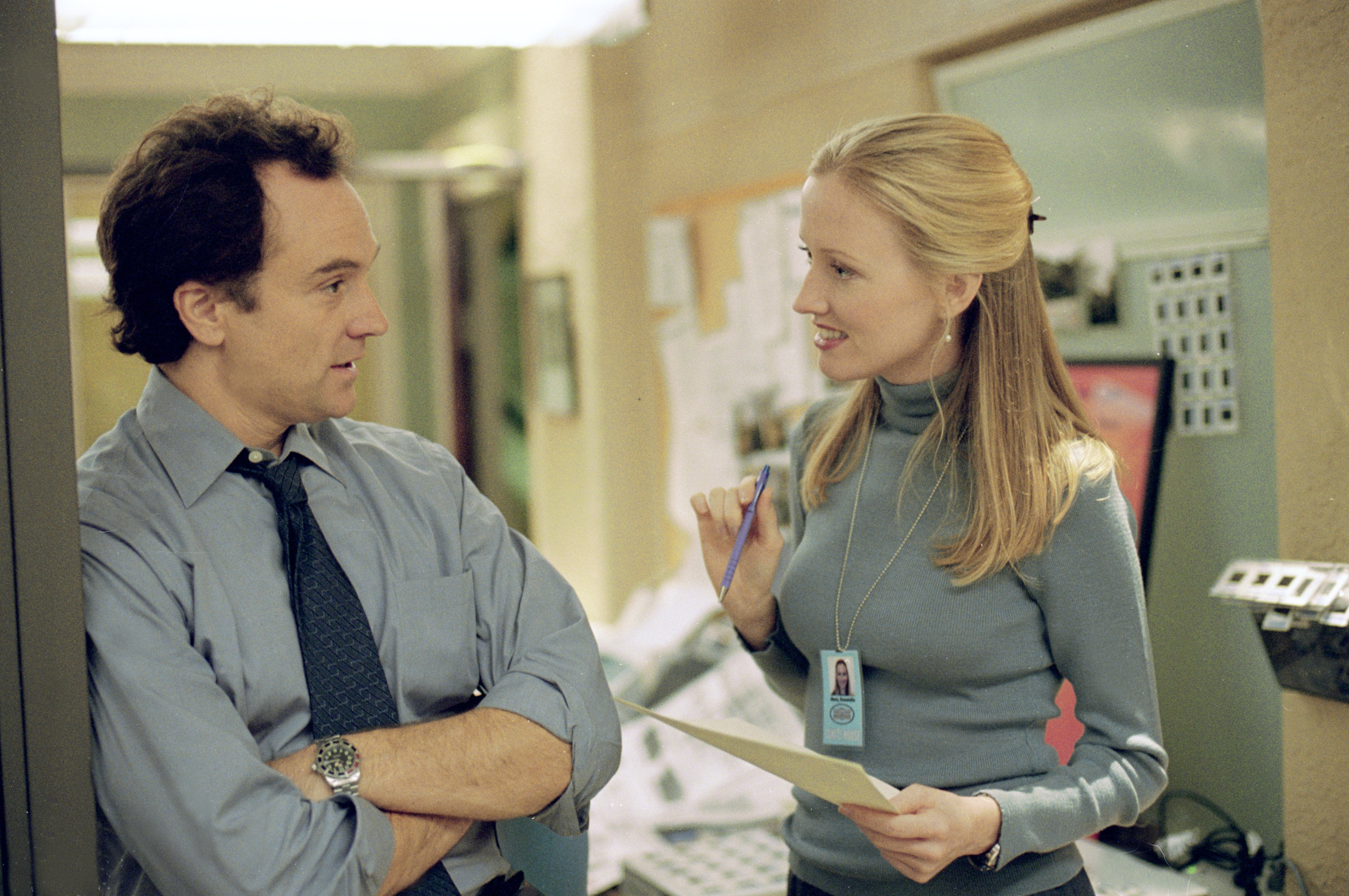
There is an almost musical rhythm to a Sorkin script – perhaps it’s no coincidence that The Social Network scribe got a degree in musical theatre. It is also dialogue to be recited with precision: on the set of The West Wing, he would misleadingly tell guest actors to “make it your own” – but would insist on strict adherence to the script. Of the main cast, it was Schiff who would most push back against this approach – a creative obstinance befitting his character. One of Sorkin’s great strengths was writing specifically to the actors; there were, amid the sea of Sorkinese patter, all sorts of nuances to be found.
Kristin Chenoweth, who joined as deputy press secretary Annabeth Schott in season six, recalls a “particularly long monologue” that had to be rattled off in one shot. “When the camera rolled, I was halfway through the speech and I went blank, the director yelled cut and we did it again and the same thing happened,” she says. “I was horrified and upset. But John Spencer pulled me aside and said, ‘Kris, it’s happened to every single one of us, now you’re in your head. Let that go and just say the words.’ And I learned a valuable lesson: don’t overthink that dialogue too much, just speak it. The words are the star.”
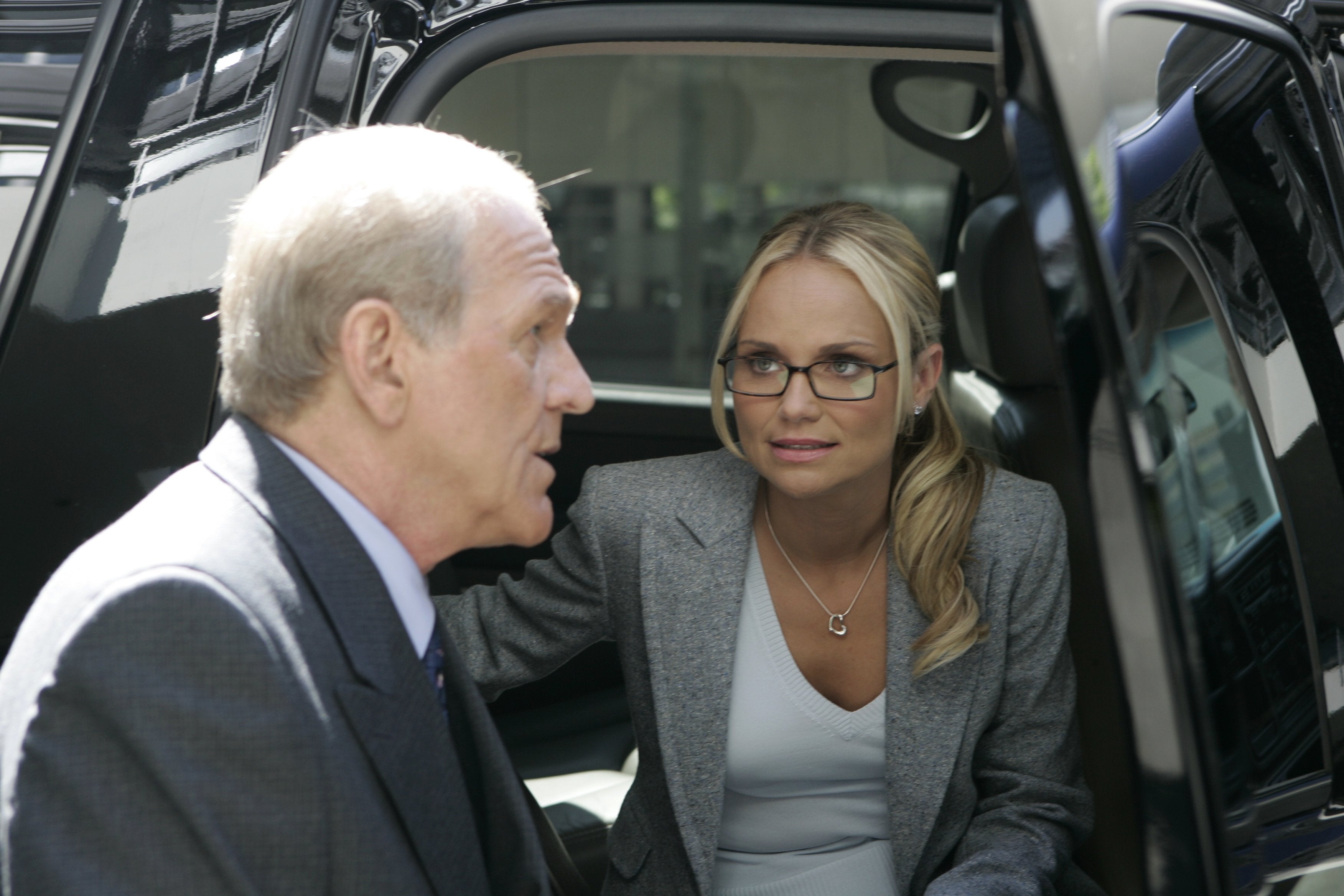
The fourth season brought the first major change in the departure of Lowe, who felt his character, initially the most narratively prominent of all the White House staffers, was being marginalised. So in stepped Malina as plucky, nebbish Will Bailey. Malina had a long history with Sorkin, having appeared in Sports Night and all three of his films, and may have once saved Sorkin’s life by administering a Heimlich when the writer began choking at a bowling night. When he learned that Lowe was leaving the series, he rapidly emailed Sorkin, proposing himself as a replacement. “Tommy [Schlamme] and I were just discussing this!” came the reply.
The newcomer’s role involved a lot of scene-sharing with Schiff, something Malina tells me he “always loved” despite their “antithetical approaches” to acting. “If the script says, ‘Will is wearing a moose costume, I’m like, ‘Alright, give me a 42-regular,’” he jokes. Schiff, meanwhile, would scrutinise every minutia of the script. “In one scene we did, Richard was asking, ‘Why am I picking up the phone and saying hello at this point?’ I was like: ‘Richard – because it rang.’”
Malina also became renowned for his belligerent practical jokes on set – pages ripped from books, iPods wiped of music, cars filled with dirt. “Malina has no sense of proportional response. If I used a hand buzzer on him, he would, you know, pick up my daughter from school and not tell me,” Whitford says in What’s Next, the recent behind-the-scenes book written by ex-cast members Melissa Fitzgerald and Mary McCormack.
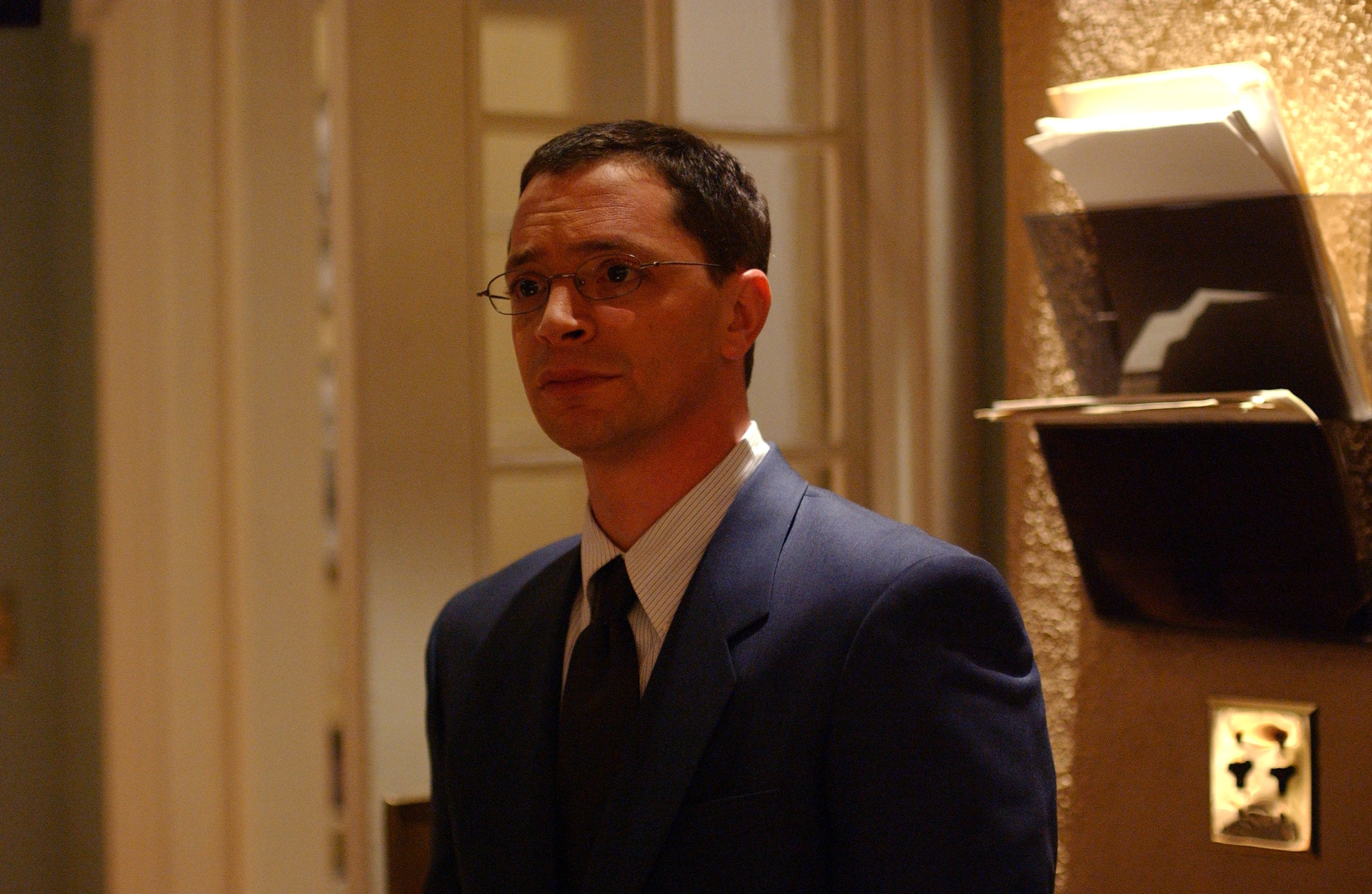
An even more momentous departure, however, was yet to come. At the end of the fourth season, there was a change of administration. Not the Bartlet administration – but Sorkin’s. Following a protracted butting of heads with the studio over issues of budget and production, Sorkin and Schlamme exited the show, leaving producer John Wells to take over as showrunner. “I thought it was a death knell,” Sheen later said. “I didn’t know if we’d last another year.” Others, however, were more optimistic. “Aaron and Tommy left in a very loving, positive way,” says Moloney. “It didn’t feel like this toxic, tragic, messed up thing. John Wells was already deep in the show… it was pretty seamless.”
Malina remembers it taking a while for everyone to “find their feet” again. “There was a shift in my character’s arc and John Wells had a meeting with me to explain my storyline,” he says. “I’m a very practical actor, so I was like, ‘Whatever keeps me on the show and gives me a storyline, that’s up to you.’” The new arc saw Will Bailey jump ship and work for “Bingo” Bob Russell (Gary Cole), Bartlet’s mediocre VP. “I know big parts of the audience felt disappointed in Will’s trajectory after that,” he says. “But I thought John Wells and the writers did a fantastic job of maintaining a high quality.” Will wasn’t the only character to take a turn after Sorkin’s departure; the most controversial plot development saw Toby, the series’ moral anchor, leak classified secrets to the press. Schiff ended up being “phased out” during the final series, by mutual consent.
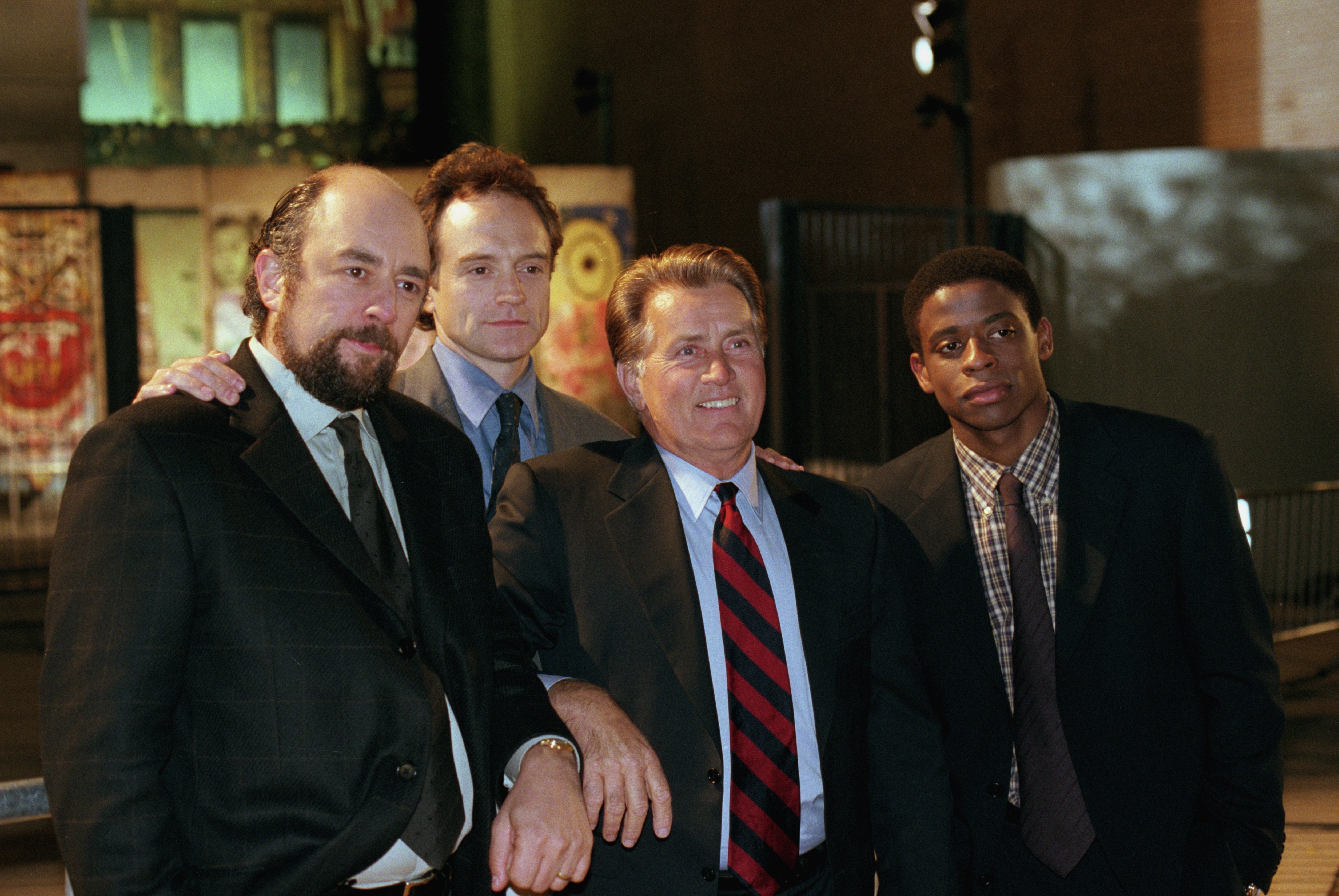
While the latter years of The West Wing never quite hit the ebullient heights of the Sorkin era, this was nonetheless no lame-duck presidency. Invigorating the series in its final two seasons was a pivot towards the post-Bartlet presidential campaign – a battle fought between Republican old hand Arnold Vinick and progressive Democratic outsider Matt Santos. To play these statesman, the series turned to two actors with heavyweight TV credentials: M*A*S*H* star Alan Alda, and NYPD Blue’s Jimmy Smits.
The crowning achievement of the election arc came on 6 November 2005, with an episode titled “The Debate”. Recorded and broadcast live – twice in one evening, for the airing on each US coast – the episode comprised a full-length, half-improvised debate between Santos and Vinick. It was, in many ways, the perfect distillation of The West Wing’s civic ambition: taking something as stiff and prosaic as an issue-based debate, and convincing people to watch it for their own entertainment.
Ultimately, it was Santos who emerged as the winner – the final twist of an election race that anticipated (in several oddly specific ways) the real-life ascent of Barack Obama two years later. Originally, the creators had equivocated over who would win the election – but the decision was made by the sudden death of John Spencer, from a heart attack, midway through filming the final season. His character Leo, who had been running as Santos’s prospective VP, was sombrely killed off, and writers feared that a Democratic loss would compound the tragedy too much. Thus, the series ended with a characteristic swell, as the Democrats – including a newly coupled-up Josh and Donna, and a returning Sam Seaborn – prepare for the transition of power.
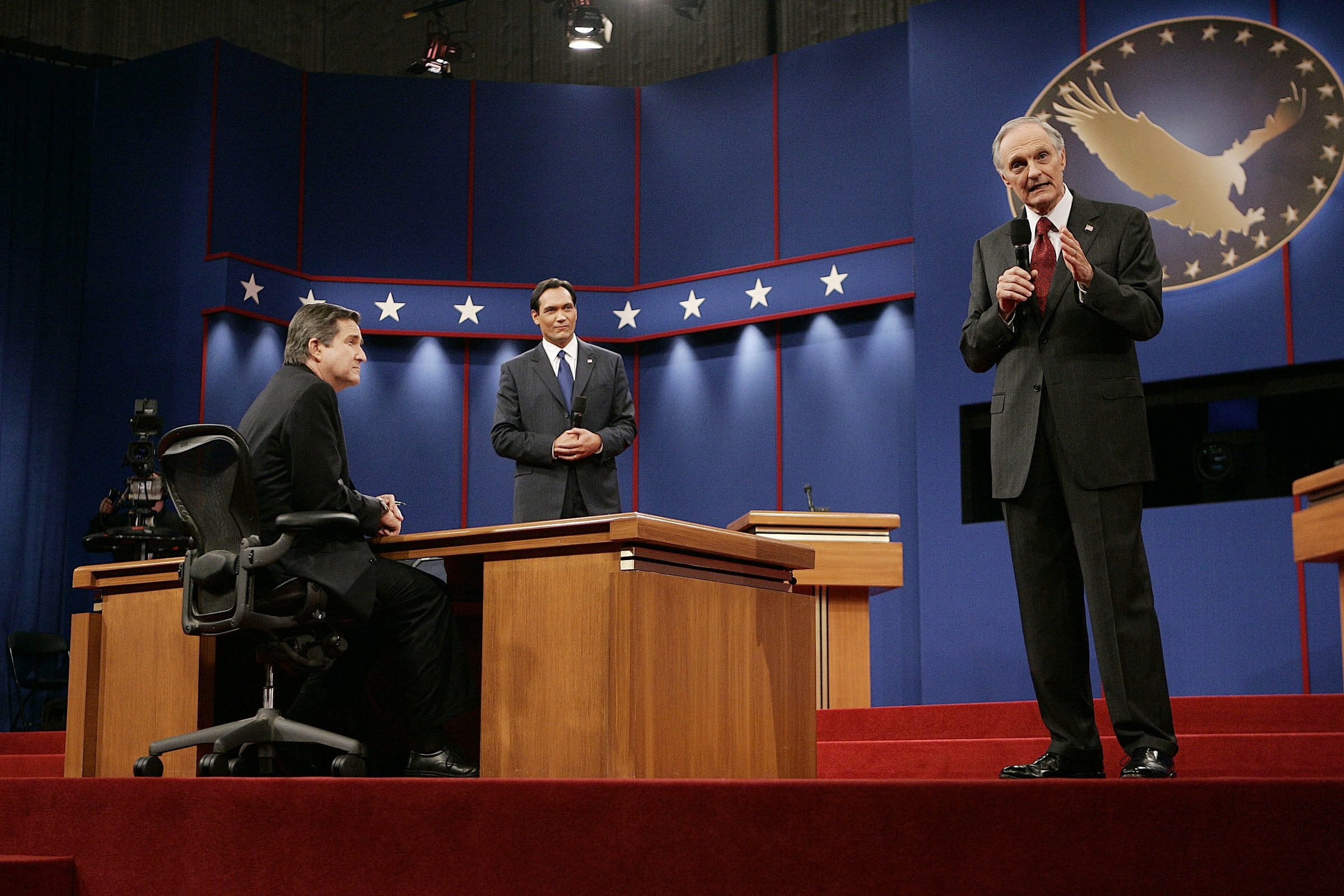
But The West Wing didn’t end in 2006. Not really. In the years since the show went off the air, it has retained an ardent and devoted following. Sorkin went on to a career of coruscating highs (The Social Network, Steve Jobs) and dismal lows: his follow-up TV series Studio 60 on the Sunset Strip and The Newsroom were lambasted for indulging his worst tendencies. In recent years, The West Wing too has been criticised for its rose-tinted vision of US politics. In a post-Trump America, Sorkin’s vision of an ethical and conscientious government seems not just sentimental but wholly preposterous: some have argued that Sorkin’ political fairytale could, in its misrepresentations, have done more damage than good.
“There’s criticism now,” says Moloney, “that these legions of Democrats went to Washington with their head in the clouds thinking it was gonna be like The West Wing. That they should have been preparing for a different, dirtier fight. I find it a little depressing. You can’t blame us for the politics. We’re just a TV show. And the fact that it inspired all these people to get into politics is surely a net-good thing.”
“I wouldn’t overstate the positive way it’s affected politics,” says Malina, “but in the 20-odd years since it aired, I’ve been approached constantly by young people telling me I went into politics or community activism because of The West Wing. The series was its own civics lesson.”
The cast too have remained firmly ensconced in the world of politics, and are – more or less all – actively involved in activism, particularly in and around the Democratic party. “The show lives on because we dream of a better future, even now,” says Chenoweth. “It reminds us of how good we once had it. I think we all still long for what we once had – and The West Wing offered hope. I wish they would reboot it, because we need more hope now than we ever have.”
Chenoweth isn’t the first person to propose a reboot – but, outside of a one-off, non-canonical reunion special in 2020, there have been no credible murmurs of a West Wing comeback. Perhaps it’s for the best. The series endures as a product of its era, a shiny relic of a more hopeful time. And besides, adds Moloney, the window for a sequel is probably fast closing. “You’ll have to get out the walkers if we don’t hurry,” she laughs. “There’ll be walker and talks.”







